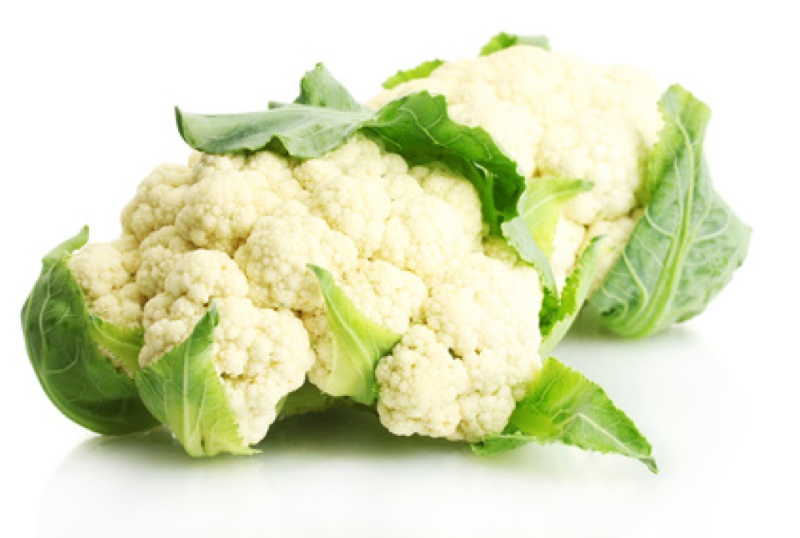by
Stepy —
December 15, 2018
- Cauliflower is a cruciferous vegetable, and is packed with health benefits.
- Let’s look at the health benefits of cauliflower.
- Anti-inflammatory:
- Cauliflower is full of vitamin K, which is a potent anti-inflammatory agent. Vitamin K directly inhibits our bodies’ inflammatory response at an early stage. Chronic inflammation is considered a major risk factor for cancer and chronic diseases.
- Antioxidant rich:
- Cauliflower is rich in antioxidants such as vitamin C, beta-carotene, manganese, quercitin, and kaempferol.
- Antioxidants protect the body from the effects of oxidative stress, which may help strengthen the immune system and ward off diseases.
- Dr. Andrew Weil explains, “oxidative stress is the total burden placed on organisms by the constant production of free radicals in the normal course of metabolism plus whatever other pressures the environment brings to bear (natural and artificial radiation, toxins in air, food and water; and miscellaneous sources of oxidizing activity, such as tobacco smoke).”
- The effects of oxidative stress are often linked to chronic illnesses such as heart disease and many types of cancers.
- Cancer prevention:
- Like all cruciferous vegetables, cauliflower is linked to cancer prevention and helps reduce free radicals in the body. They contain a nutrient known as glucosinolates. Upon digestion, this compound can help to eliminate carcinogens before they damage or alter DNA. It helps prevent healthy cells from converting to malignant cells that lead to cancer. Cruciferous vegetables can prevent lung, breast and prostate.
- Digestive health:
- Cauliflower is a great source of dietary fiber, containing 2.5g per cup, which is 10% of the recommended daily value. Fiber is known as an essential ingredient to overall digestive health. The sulforaphane in cauliflower helps create a protective lining in the stomach and helps kill harmful stomach bacteria like H. Pylori.
- Heart health:
- Chronic inflammation can create issues with blood vessel health and blood circulation, which can lead to heart problems. The vitamin K and omega-3 fatty acids in cauliflower help prevent inflammation. Cauliflower also contains a glucosinolate called glucoraphanin, which converts to sulforaphane in the body. Sulforaphane is believed to act as an anti-inflammatory agent, and may possibly help prevent and reverse blood vessel damage.
- Weight loss:
- Cauliflower is high in dietary fiber, and low in calories, making it a great for a weight loss diet.
- Note: None of the information in our website is intended to diagnose, treat, cure or prevent any illness or disease. The content on our website is for educational purposes only.
- Nature’s potent multivitamins: Cruciferous vegetables.
- For the health benefits of spinach.
- For the health benefits of kale.
- REFERENCES:
- 1. “Nutrition Facts and Analysis for Cauliflower, Raw.” Self Nutrition Data. Self Nutrition Data, n.d. Web. 28 Nov. 2013.
- 2. Weil, Andrew, MD. “Stumped by Oxidative Stress?” WEIL. Dr. Andrew Weil, n.d. Web. 28 Nov. 2013.


















